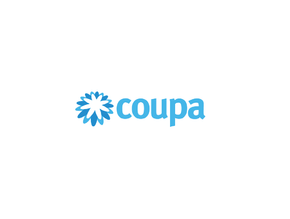The future of procurement lies in digitalisation adoption

Globality recently partnered with ProcureTech for a comprehensive survey on the future of procurement. The survey gathered insights from nearly 200 leaders across sector and company size, and highlighted that more aggressive and advanced digital transformation will be a top priority over the next three years, as procurement leaders adopt new technologies to inject agility into their operating models and react quickly to dynamic economic, environmental and geopolitical situations.
The results showed that digital transformation and new ways of working will reshape procurement, with 90% of respondents expecting a relative or significant change in their operating model over the next three years. 63% said that the role of procurement itself will be changed for the better by leveraging state-of-the-art technologies.
“The numbers paint a clear picture”, says Globality's Chief Revenue Officer, Keith Hausmann. “The future of procurement lies in successfully taking digitalisation to the next level, with the companies who are outperforming their peers having either adopted cutting-edge, best-of-breed digital solutions already or planning to do so in the immediate future. Those that don’t will fall behind.” Hausmann leads the go-to-market activities at Globality and is a member of the senior leadership team, driving Globality's vision of bringing needed innovation to the indirect procurement process.
Technophobia: Ensuring employee buy-ins to technology adoption
It is important for procurement leaders to effectively communicate the advantages of new technology to their teams, highlighting how it will not only eliminate repetitive manual tasks, but also allow the function to do more with less. Thanks to these enhancements, procurement teams will be able to focus more heavily on strategic value creation and problem-solving for the wider business.
Modern solutions offer transparency and visibility throughout the process – especially when leveraging artificial intelligence (AI) – as they can also enhance decision making. Although there is a long-standing myth that AI can perpetuate bias, Globality’s platform, in fact, does the opposite and eliminates bias during the sourcing process.
“A major problem with many procurement models is that a company’s budget owners simply use the same incumbent suppliers they have bought goods and services from for years,” says Hausmann, “which fundamentally reduces competition and potentially adversely impacts inclusion and innovation. To counter this, AI-powered sourcing advisor Glo uses natural language processing and machine learning to instantly match companies with the suppliers that best fit their needs.” This enables procurement to become not only more agile and efficient, but also to ensure that the process leads to cost and time savings, compliance and risk management.
AI: Complementing human activity
According to Hausmann, “AI is not replacing people – it is eliminating mundane tasks so that people can do their work more efficiently and prioritise strategic initiatives that add real value to the wider business.” This new model will increase procurement’s influence across the organisation and give talent the opportunity to develop their careers and progress within their companies. Especially when coupled with natural language processing (NLP), it can make it easier for business stakeholders throughout the source-to-contract processes which in turn, can help increase the amount of spend under management while delighting business stakeholders.
One example of these possibilities is the traditional RFP, which has always been a slow, painstaking process. Instead, AI identifies desired business requirements up front and then highlights those characteristics in a shortlist of suppliers, making it easy to quickly select the best provider, both in qualitative and quantitative terms, for each specific need. AI can help look at patterns of behaviour and compile different factors, including cost and capability, to make the right decision about suppliers in days rather than weeks or even months.
The benefits and value-add of AI-powered technology
In addition to the increased efficiencies throughout the sourcing process enabling quicker speed-to-market, companies that have embraced Glo’s AI-powered sourcing technology have also seen significant cost savings.
For example, Santander Bank enjoyed an average of 15% cost savings on projects as a result of implementing the platform. It creates efficiencies that mean companies can do more with less, while also moving faster. It democratises key steps in the process, letting those with the means to easily and quickly capture them, communicate with procurement and suppliers, all while ensuring compliance and risk management.
“AI-powered sourcing also builds vital agility and resilience into supply chains and value chains,” Hausmann says, “allowing companies to identify the best supplier for each sourcing need through insights drawn from the millions of data points that Glo has generated from every project done on the platform.”
Workplace culture and successful adoption rates
Given the need for procurement to deliver more with less during existing economic challenges, it’s going to be increasingly imperative for procurement leaders to invest in the digital capability of their teams. A survey by Glo revealed that 55% of organisations are piloting - or have already implemented - increased access to digital platforms and solutions at scale. These cutting-edge digital solutions will also help attract the top-tier of today’s workforce, which demands a seamless, consumer-like experience in their professional as well as personal lives.
To drive adoption of this essential new technology, organisations must create a culture of digital comfort and reliance, while ensuring that the solutions and platforms they start using are simple and intuitive for both procurement teams and business stakeholders. Companies with cultures that embrace new technology and operating models will not only survive but also thrive, while those who fail to do so, will fall behind.
Procurement and the culture of transformation
As procurement promotes this new culture of transformation and agility, its people must embrace new skills, becoming relationship managers with business stakeholders and suppliers; or consultants and trusted advisors with deep business understanding; or problem solvers who have the flexibility and innovative ideas to meet the new challenges and disruptions that lie ahead.
Hausmann concludes, “procurement has the unique opportunity to increase its impact across the organisation by partnering with business stakeholders and external suppliers via seamless, connected digital channels to drive better sourcing outcomes – leveraging AI-powered technology is the way to drive this pioneering new culture of collaboration and innovation, all while delivering better business outcomes.”






